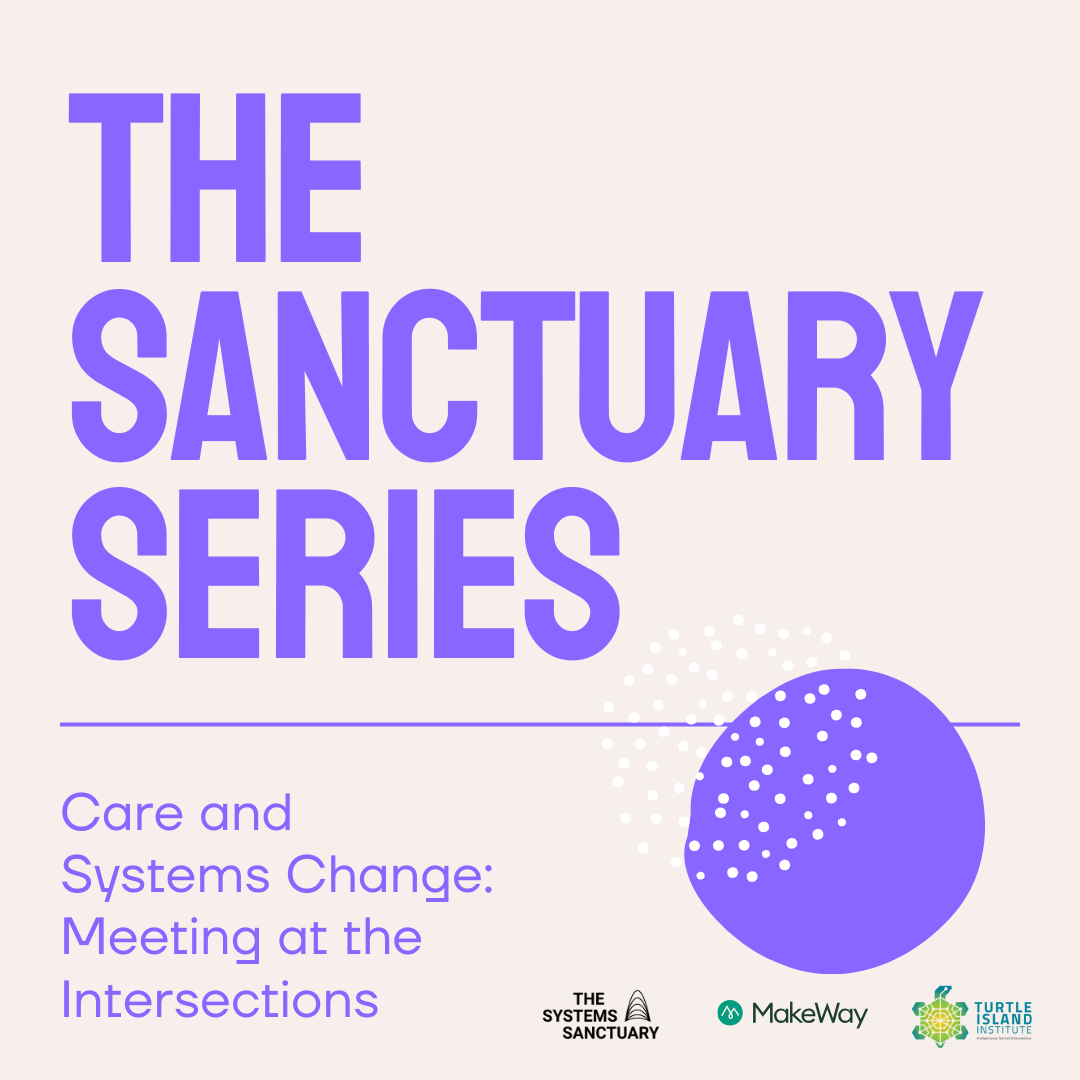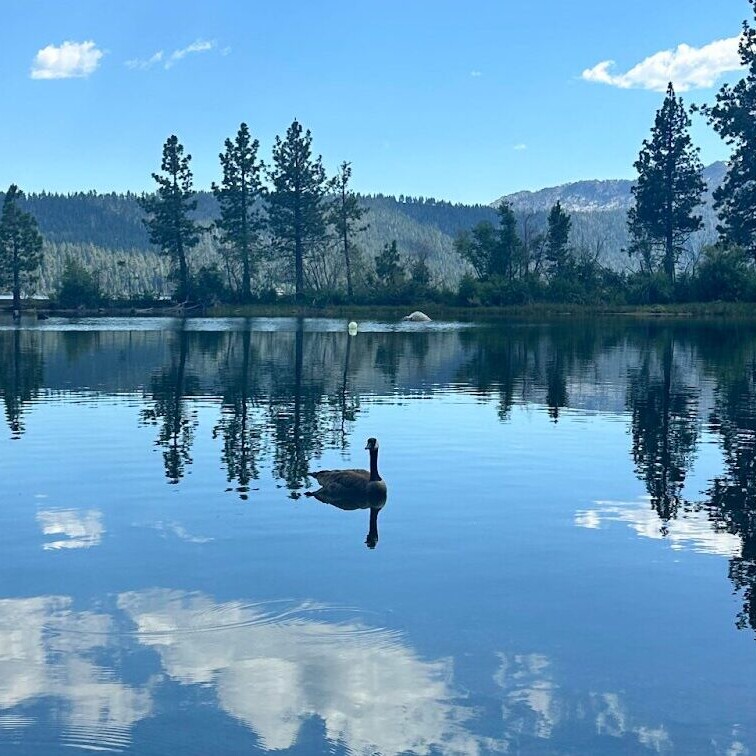This piece is the first article in the Care series, a collaboration between System sanctuary and Turtle Island Institute
Care is a theme that has come up over and over again in our System Sanctuary peer-learning sessions. When we mapped out and analyzed the systemic barriers and opportunities in the climate change space, care was there. It was everywhere.
As Joanna Kerr from Makeway states,
“COVID is changing our societies like never before, and there is an opportunity to emerge from this better — where we have different relationships with one another and the planet. We need to simultaneously tackle inequality and the climate & nature crisis. There is a rush towards technical solutions, and there is a need to create a strategy to address climate change/nature crisis that works on a systems and cultural level, and doesn’t just address policy.
Many women leaders in the field have ideas about how to do this, but are isolated and up against systems that are stuck in outdated ways of thinking and acting.
There is a profound appetite for women leaders on nature and climate to gather and make meaning together.”
Why care?
It has been challenging to sit in rooms with older senior level male leaders and their younger male counterparts, — telling me that the new answer to all the problems we are facing is care. Every time I find myself in these rooms, I get excited and frustrated. Excited because “care” opens up a conversation with so much possibility. Frustrated because no matter what I say, it does not land. Every time I ask questions, the questions are somehow not relevant.
How can we talk about care without a lens of power? How can we talk about care without a gender, race, and intersectional lens? Who cares? Who pays? Who benefits for and from the current system and cultures of care?
If we all simply focus on care, how will the inherent inequities, exploitation, invisibility, and devaluation that exist in the multiple dimensions of care today change? Care is political, right?
Troubling care
Care issues are wound together like a ball of yarn. Once you start to pull on one string, you find it is tangled with many other issues.
Care cannot be siloed into neat topics like the economy, or children, or elders, without connecting it to climate, gender, or poverty, and without holding these latter concerns together with dominant systems like capitalism, patriarchy and colonization. It helps to think about care as intersectional.
Through the Sanctuary Series, we have been looking at the intersections of care across contexts, issues and cultures. In this dialogue series, we have been untangling and pulling out threads as lines of inquiry. The hope is that collectively we will discern teachings to guide our actions and deepen our wisdom.
Care brings us hope because it is at the core of so many issues. It shows up in all of our work with systems leaders through a shared intention to shift from harmful systems to caring ones. Dominant cultures appear stuck in technocratic, silver-bullet solutions and policy-based businesses that do not help people. Here are the questions we and the people we work with are asking right now: How do we support cultures of care? How do we center care in our work and organizations?
It is clear, however, that care is devalued. Caregiving is invisible labour. Unseen means unrecognized, not counted, or part of the GDP. Care work is systemically underpaid, and the working conditions for people in the care economy can be precarious, whether they are in childcare, domestic wor,k or the healthcare systems. Care work is gendered and racialized. Women carry most of the care load. Racialized immigrant women are predominantly overrepresented in underpaid care work.
Dominant cultures that value endless growth, profit, and the bottom line continue to exploit people and the planet while caregivers work tirelessly to manage the fallout. Caregivers are burning out in every sense of this word. Women, who carry more weight at home, have left the workforce in high numbers. Through an intersectional lens, we see that climate issues are intensifying, and gender-based violence is on the rise.
We are unbalanced when it comes to care.
Paradoxically, by naming the power dynamics and the ways in which gender and race intersect, we risk solidifying the power imbalance. And by focusing on care, we risk reducing women to roles from the Dark Ages.
By stating explicitly that care is gendered and racialized, we reinforce this power imbalance. Yet, if we don’t name it, we risk perpetuating the invisibility of women caregivers and devaluing the care they provide.
When we are out of balance regarding something as fundamental as care, injustice results, this can manifest in different ways. We are walking a tightrope here. We are stuck in a double bind that will not be unbound in the usual systems change or social change rooms. As Nora Bateson points out, double binds require a third (or fourth, or fifth …) context to transcend stuck binaries.
In this spirit of seeking alternative contexts, we set out on our inquiry.
We created a space to hold multiple lenses together at the same time. We centered on an Indigenist, intersectional, feminist, and systems worldview. We invited voices and perspectives that we think need to be heard.
In this reflection series, I have pulled and woven only a few of the many threads in the care blanket. I invite you to engage with the series and find your own threads. For those who journeyed with us, I invite you to share your reflections. Send us your writing, poetry, or visual art. What gifts and insights have emerged? What did you learn?
When I asked Bayo Akolomafe, who was our guest in Session 8, “What are you seeing? What is shifting?” he offered us this:

Access The Sanctuary Series at Systems Sanctuary HERE, or download a link to keep in your files HERE

Tatiana Fraser has spent her career starting up and growing ecosystems and networks for systemic change.
She co-founded the Girls Action Foundation, which became a network supporting the empowerment and leadership of girls and young women, scaling it nationally across Canada before stepping away and letting it fly. She was selected as an Ashoka Fellow for her work and recognized as one of Canada’s Top 100 Most Powerful Women by the Women’s Executive Network.
originally published at The Sanctuary Series
featured image found here

Network Weaver is dedicated to offering free content to all – in support of equity, justice and transformation for all.
We appreciate your support!



